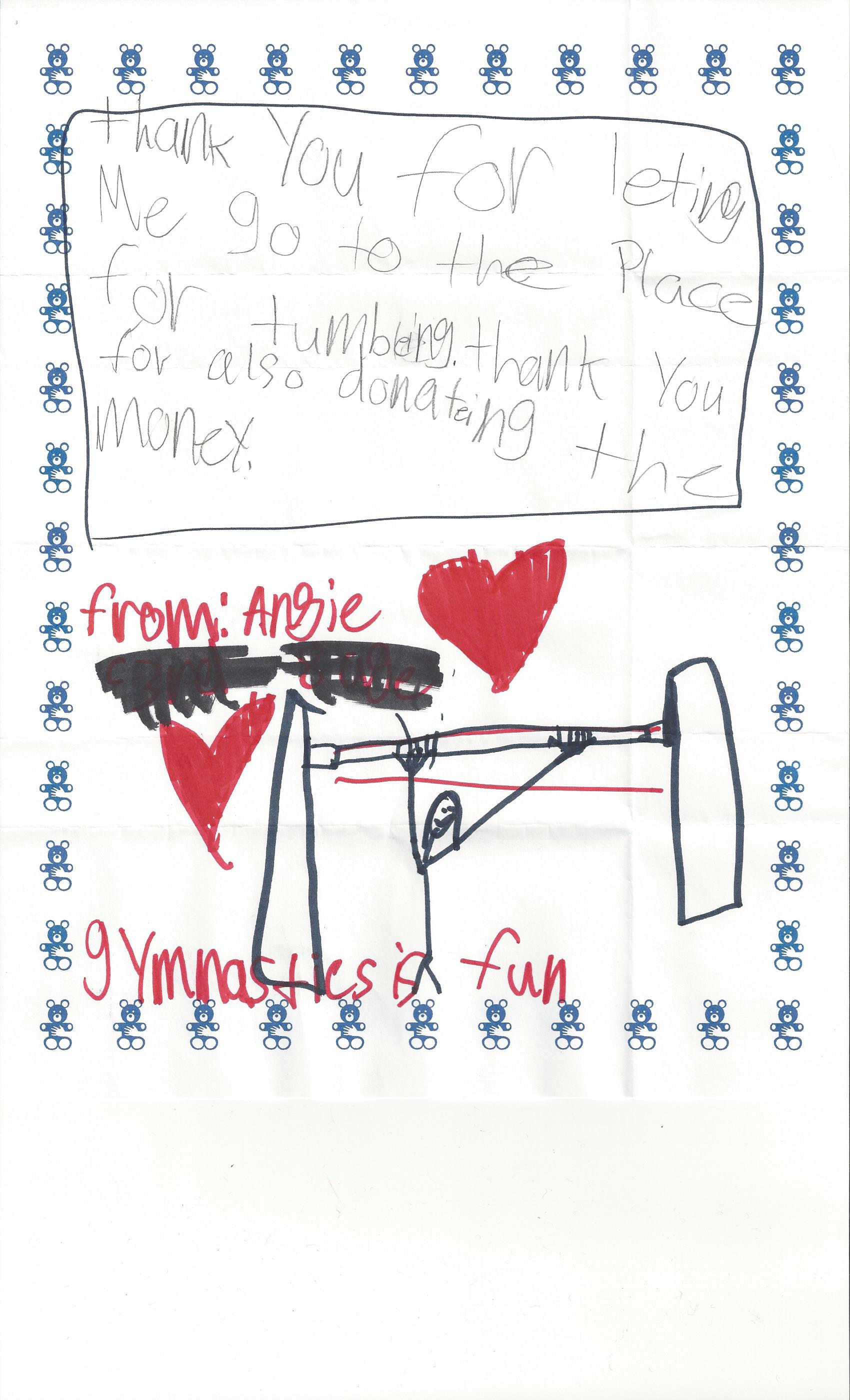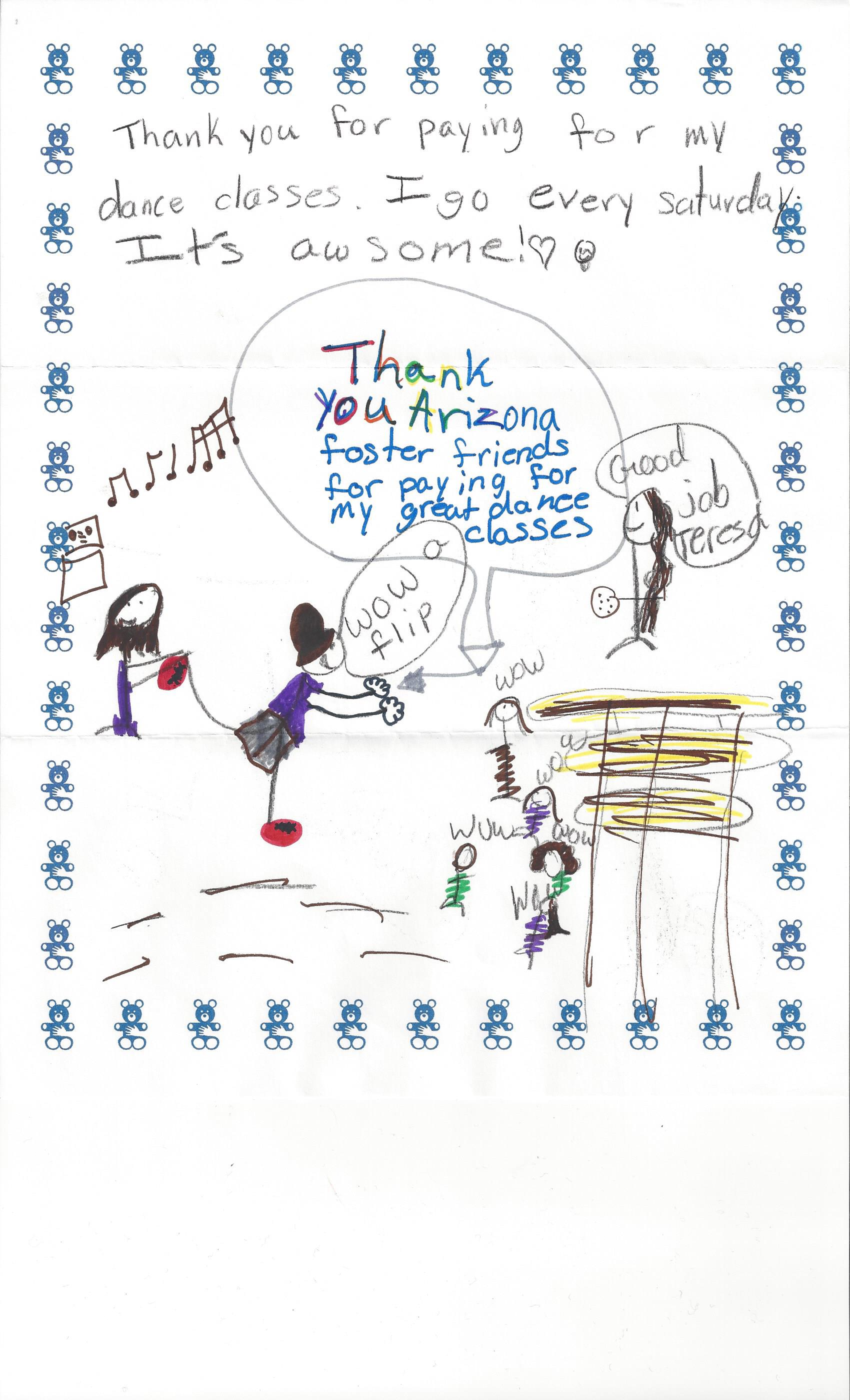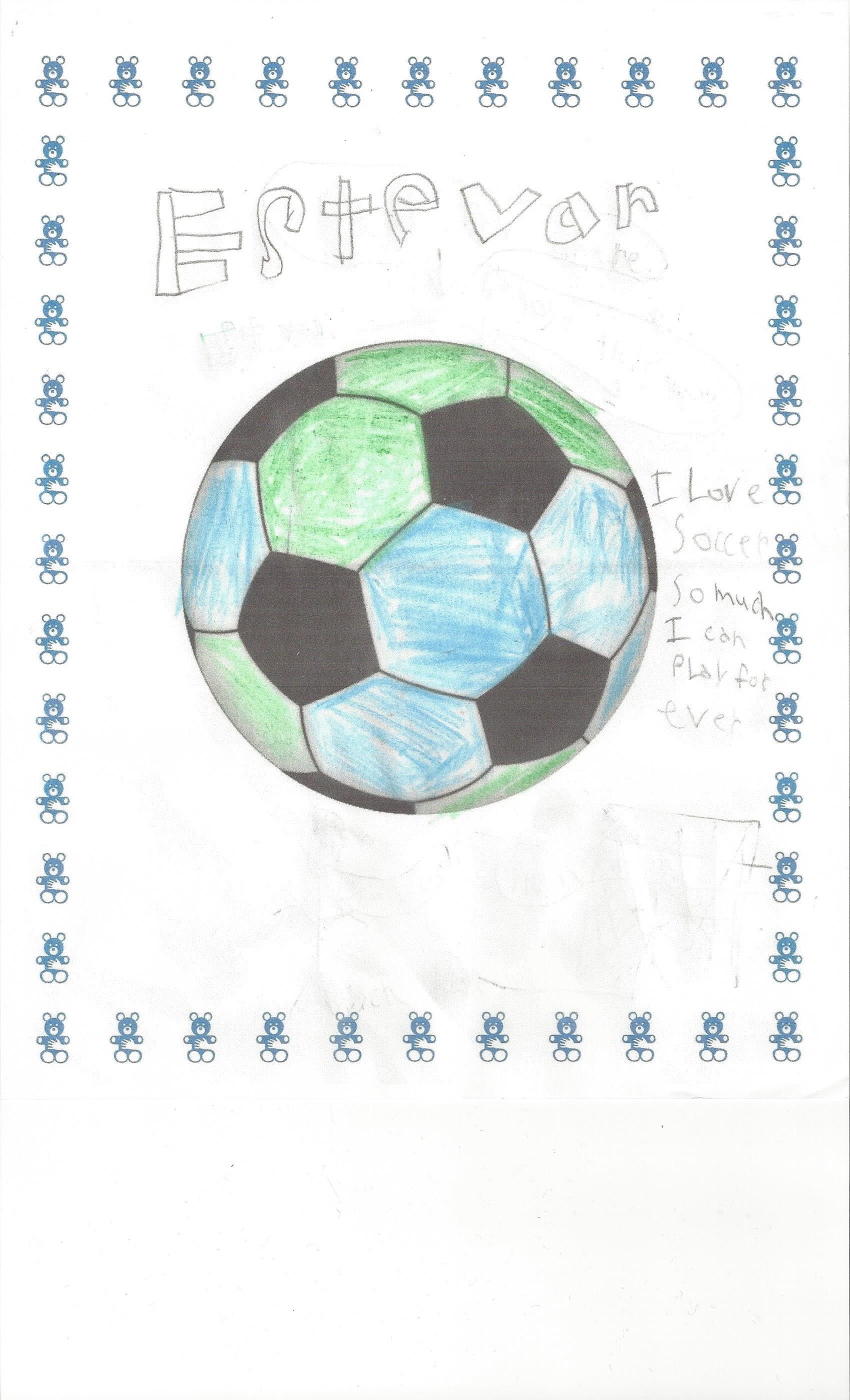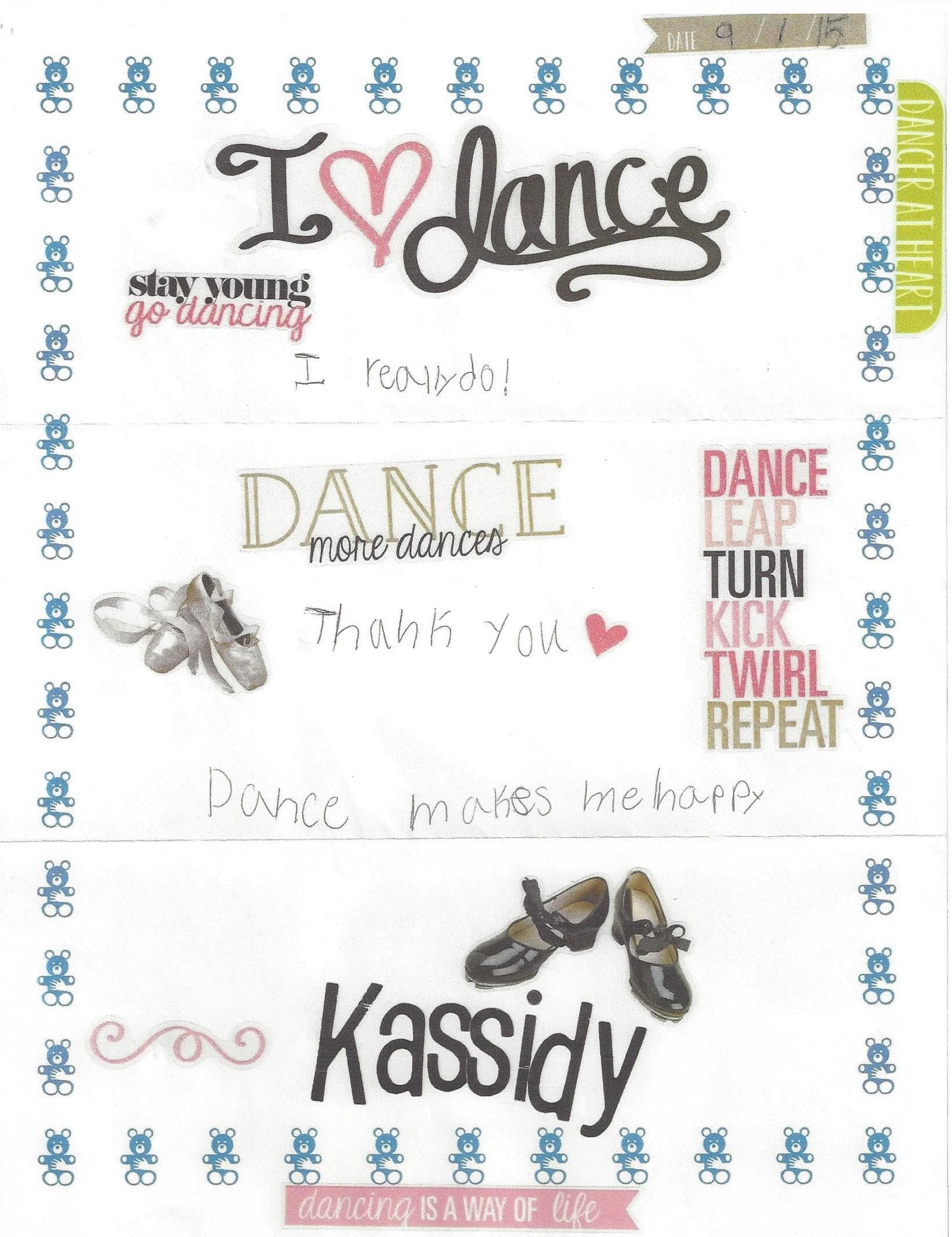“Adrianna was two years old when she moved into our home. After 15 years as a foster mom, it’s still hard to describe the looks on the faces of the children we’ve cared for on their first day in our home; scared out of their wits, hurt beyond their years, running through the house, crying in their rooms, curled up in a ball at the front door when we’d wake up in the morning.
Slowly, we gain their trust. We learn what makes them laugh and what is scary, what they like to eat, and whether they can sleep if we turn off the lights. We learn that they like to dance, sing, swim, or play a sport and we try to fill up their lives with the things they love…to overcome some of the things going on in their lives that are so difficult.
a sport and we try to fill up their lives with the things they love…to overcome some of the things going on in their lives that are so difficult.
For Adrianna, it was gymnastics. She loved to walk on the tightrope, jump on the trampoline and help the younger kids in her class. Then, it was swim. We have a backyard pool and, from the first time she jumped in, she was fearless…too fearless. We knew she need swim lessons. Arizona Friends of Foster Children made that happen.”
I’m sharing Adrianna’s story because she’s one of more than 5,800 children in foster care who received awards for social, athletic, and educational opportunities from Arizona Friends of Foster Children Foundation in 2017. The goal for 2018 is to serve 7,500 children with more than $1.5 million in awards; a 50% increase over last year.
Here’s why it matters. A 2011 study (the most recent study we can find) by the National Center for Youth Law concludes that “If any children can benefit from extra-curricular activities, it is foster youth. Extracurricular activities address three areas of concern for foster youth, namely, academic achievement, behavioral problems, and identity development.”
Center for Youth Law concludes that “If any children can benefit from extra-curricular activities, it is foster youth. Extracurricular activities address three areas of concern for foster youth, namely, academic achievement, behavioral problems, and identity development.”
The study continues, “Extracurricular activities provide opportunities for students to interact with and create bonds with different peers and adults than they would normally encounter during school. Given that foster youth may be especially disconnected from their school community because of repeated transfers and peer criticism and judgement, extracurricular activities may facilitate a greater feeling of belonging and support.”
At AFFCF, we know first hand the impact that an award for extracurricular activities can have on the children and families we serve. Recently, we surveyed over 200 caregivers who had children receive awards during th e first half of 2017 about the impact of the awards on their children. Out of those surveyed, 92% of caregivers responded that the youth demonstrated improved academic achievement, 98% demonstrated improved behavior, and 99% experienced improved self-esteem.
e first half of 2017 about the impact of the awards on their children. Out of those surveyed, 92% of caregivers responded that the youth demonstrated improved academic achievement, 98% demonstrated improved behavior, and 99% experienced improved self-esteem.
Every day, the Arizona Friends of Foster Children Foundation improves the life of a child in foster care. This week we’ll mail out 125 checks to pay for martial arts, summer camp, cheer, soccer, track and field, senior pictures, and more. If you are caring for a child in foster care, we encourage you to figure out how a child in your care could benefit from an extracurricular activity and apply for an award that falls within our guidelines. It will be our pleasure to say ‘yes.’
Kris Jacober
Executive Director -Arizona Friends of Foster Children
www.affcf.org
